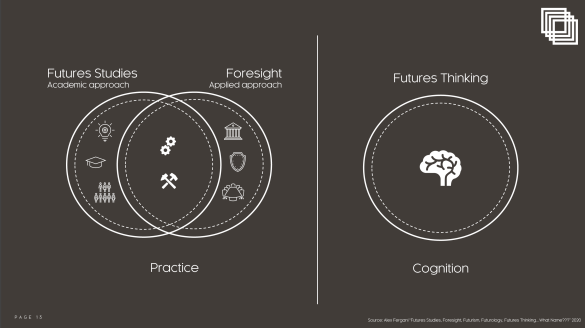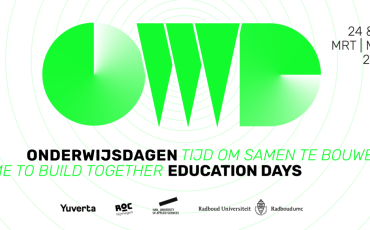John Walker
Young professional from Montana, USA. I currently work on projects for… Meer over John Walker
The future is not a destination –
it’s [about] practicing possible futures.It’s about rehearsing different strategic options.
Futuring Partners: What is CIFS?
The past is sticky, and the future is fluid. What will stick?
The Copenhagen Institute for Futures Studies (CIFS) is an independent, non-profit research organization that specializes in foresight and future studies. The institute's mission is to identify and analyze emerging trends, technologies, and social changes that will shape the future, and to provide insights and advice to businesses, governments, and organizations around the world. CIFS conducts research, publishes reports, and provides consulting services and educational programs to help individuals and organizations prepare for the future.
"Futuring" is a term used to describe the process of thinking about and anticipating the future. It is an interdisciplinary field that draws on various methods and approaches, including scenario planning, trend analysis, foresight, and forecasting. The goal of futuring can be to identify emerging trends, opportunities, and challenges, and to develop strategies and plans to address them. Futuring is used by individuals, organizations, and governments to make informed decisions, prepare for future scenarios, and create a more sustainable and resilient future.

Future studies is a broad and interdisciplinary field that seeks to understand, anticipate, and influence the future. It involves the systematic and rigorous study of the future, using various methods and approaches such as scenario planning, trend analysis, and forecasting. Future studies draw on a range of disciplines, including economics, sociology, psychology, and technology, to explore potential futures and develop strategies to address them.
Futuring, on the other hand, is a more specific and practical approach to exploring the future. It involves the use of creative and imaginative methods to envision possible futures, such as storytelling, visualization, and design thinking. Futuring is often used to inspire and inform innovation, strategic planning, and decision-making.
In summary, future studies is a broader and more academic field that encompasses futuring as one of its many methods, while futuring is a more specific and practical approach to exploring the future.
Futuring can play a crucial role in preparing educational institutions and research organizations for change by anticipating future developments and adapting to technological advancements. For SURF, this proactive approach enables well-informed decisions. and staying on top of emerging trends.
In addition to promoting long-term success, futuring also encourages interdisciplinary collaboration. By bringing together experts from various fields to tackle complex problems, organizations like SURF can foster a culture of collaboration and knowledge exchange, which is essential when working with members. Overall, engaging in futuring ensures being responsive to an ever-evolving landscape.
To start this process, SURF has published a new Trend Report to help us understand the technological developments that are going on around us, to make sense of our observations, and to inspire. We have chosen the technology perspective to provide an overview of signals and trends, and to show some examples of how the technology is evolving. Find that report here.
For more information contact futuring@surf.nl or check out https://www.surf.nl/en/futuring
Young professional from Montana, USA. I currently work on projects for… Meer over John Walker


0 Praat mee